What Does SCUBA Stand For or
What Does SCUBA Mean?
Let's start with the most basic fact about scuba diving of all. What does scuba stand for or what does scuba mean? An acronym, the word scuba stands for
"Self Contained Underwater Breathing Apparatus"
It was initially used to describe the system that first allowed divers to go underwater without being connected to an air supply on the surface.
Getting ready to take a scuba diving training class in Cozumel.
The term was originally used during WW II.
It referred to the Navy's oxygen rebreathers used by frogmen. Rebreathers are closed circuit breathing sets.
The frogmen used these devices during underwater demolition and offensive underwater attacks.
The rebreather for the US Navy was developed by Dr. Christian Lambertsen in the 1940's.
Modern Scuba Diving
Today, the term has come to refer to diving in general and the open circuit breathing system in use today. This system was invented by Jacques Cousteau and Emile Gagnan and it allows divers to breathe from a tank of air on their back and exhale it into the water.
This system was invented in 1943 and is what is in use today. It was also referred to back then as an "aqualung".
This invention really brought about the popularity of diving and allowed just about anyone to become a diver.

Getting ready to go for a boat dive.
To become a certified diver today, you need to take and pass a scuba diving certification class. There are national agencies that administer the class worldwide.
The class begins with some book work and tests so you are familiar with the procedures and safety rules of diving. You then move on to the pool portion where you learn the required underwater skills.
The class culminates in passing 4-5 open water dives. You can then get your certification card which allows you to dive with any shop worldwide.
You can read more about the history of scuba diving and get more basic information about diving here.
So there you have it - the meaning and history of the word SCUBA and the answer to the question what does scuba stand for?
Here's to great scuba diving!
Want to stay down longer and improve your buoyancy control and other diving skills? Our free report "Increase Your Bottom Time" along with our practical, weekly actionable tips will have you looking like a seasoned diver in no time. So come join us and see improvement on your very next dive!
(Click on the photo to join us now!)
What's New
-
Unofficially Summer
May 25, 24 07:19 AM
Well it is finally here. Memorial Day weekend and the unofficial start of summer! Wishing everyone a happy and healthy holiday weekend. Hopefully the weather cooperates wherever you are and you will b… -
Happy New Year
Jan 01, 24 06:00 AM
Happy New Year everyone! I hope everyone is well and had a fun New Years Eve! May your new year be filled with lots of wonderful dives. All the best to you and yours in 2024! Let the dives begin. -
Happy Holidays
Dec 14, 23 05:05 AM
I hope everyone is enjoying the holiday season! I am always amazed at how fast time flies and another year is just around the corner. I wanted to pop in and say hi to everyone. I am doing some full ti… -
3 Common Scuba Diving Mistakes New Divers Make
Feb 23, 23 02:18 PM
In this video, I share 3 common scuba diving mistakes beginner divers make. Learn how to correct these for a better - and safer - dive. -
Scuba Diving Tipping Etiquette: How Much And When To Tip Scuba Crew
Feb 06, 23 03:34 PM
Not sure of scuba diving tipping etiquette? In this video I share who to tip, when to tip, how much to tip, tipping on liveaboards, tipping an instructor & more
Top of What Does Scuba Stand For
Go to main Scuba Diving Basics Page
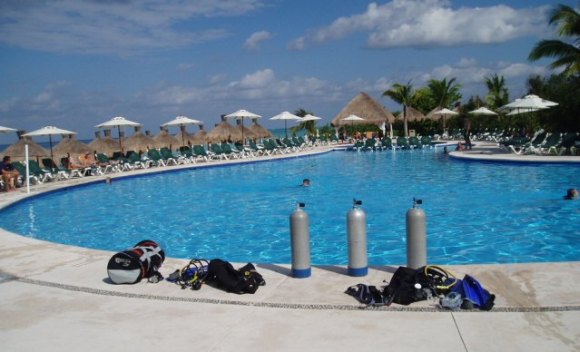


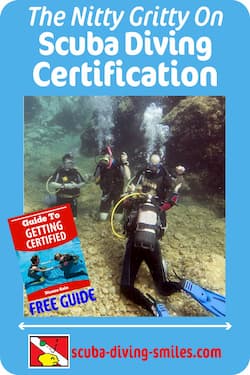
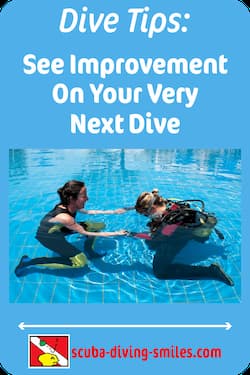
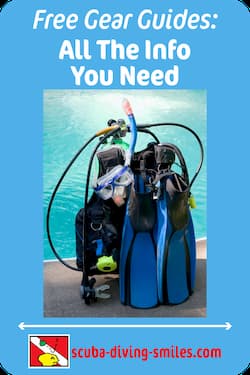

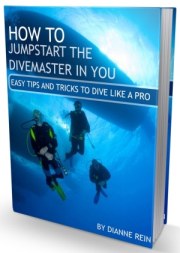


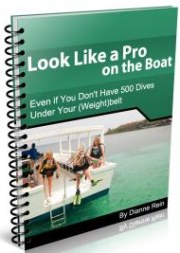

New! Comments
Have your say about what you just read! Leave me a comment in the box below.